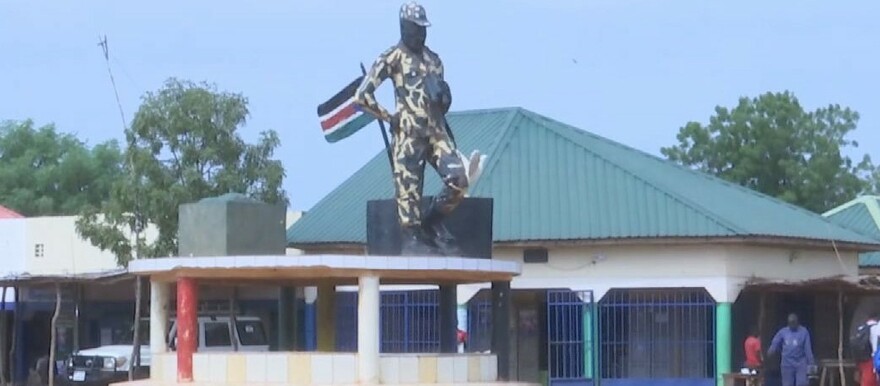The United Nations Development Programme (UNDP) and the Warrap State Ministry of Culture, Youth, and Sport on Tuesday concluded a transformative leadership training program for 35 young individuals in Kuajok town, Warrap State.
The three-day workshop brought together youth representatives from six counties, namely Twic, Gogrial West, Gogrial East, Tonj East, Tonj West, and Tonj South, with the aim of fostering mentorship, peace, reconciliation, and transformative leadership skills.
Kerubino Bith, the Director of Youth and Sport at the State Ministry of Culture, Youth, and Sport, addressed the importance of the training in addressing the sporadic conflicts in the state. He expressed hope that the program would promote peaceful coexistence among neighbouring counties, highlighting the need for increased awareness of the significance of peace and reconciliation within communities.
Bith stated, “This workshop is crucial for our youth because the violence, such as cattle raiding, rape, and killings that occur throughout the state, is often instigated by young people. These trained youth will act as ambassadors of peace, raising awareness about peace and reconciliation in their villages and working towards changing mindsets to foster peaceful communities.”
He also urged the youth to refrain from violence and emphasized the role of engagement and involvement in governance for their positive contribution to society. Bith stated, “By engaging our youth in governance, we can harness their potential and ensure they become productive members of society.”
Viola Matela, one of the facilitators of the workshop, explained that the training focused on mentorship, coaching, and empowering youth leaders to voice their concerns while understanding the root causes of communal violence. The program aimed to equip participants with skills in public speaking, transformational leadership, advocacy, and lobbying, enabling them to actively participate in governance as outlined in the provisions on peace and security in the revitalized agreement.
Matela highlighted the importance of addressing the concerns raised by marginalized youth. She expressed hope that the trained youth leaders would be able to influence the actions of their peers and contribute to ending issues such as forced marriages and rape. Furthermore, she emphasized the significance of youth leaders in addressing the concerns presented in United Nations Security Council Resolution 1320, which emphasizes the role of youth in ensuring peace and security.
Upon completion of the training, many participants expressed their satisfaction with the mentorship program, acknowledging its transformative impact on their approach to addressing negative behaviours within their communities.
Lual Malueth, a youth from Gogrial West, shared his newfound understanding of transforming his community from one plagued by communal violence to a peaceful one. He said, “Today, I have learned a great deal about transformative leadership and mentorship. Our trainer guided us on effective decision-making, particularly regarding issues affecting our communities, with a focus on leadership. By the end of this program, we will be equipped to lead our community toward a conflict-free and peaceful way of life.”
Mary Adhel, another youth from Tonj North, expressed her appreciation for the training, specifically highlighting her understanding of leadership and its essential qualities. She stated, “I have gained a deeper understanding of what it means to be a leader. It is about leading by example, with qualities such as patience, justice, and cooperation. A good leader respects the rights of others and possesses the courage to guide people in the right direction.”




